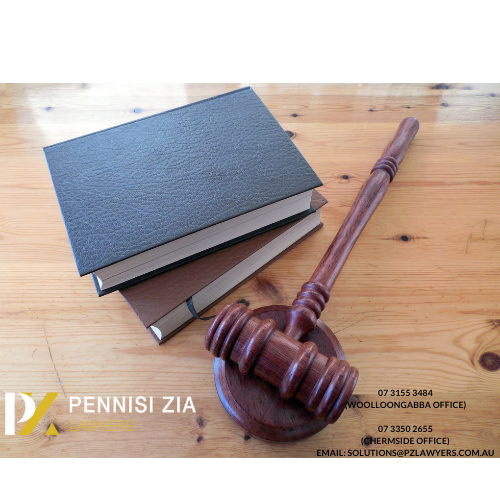Can Police Inquiry You Without A Legal Representative?
Every word you state to law enforcement can be used in court, and also one of the most harmless comments can complicate your protection later. An attorney can aid you recognize the ramifications of your words and guide you on exactly how to mount your actions to maintain a solid protection. This preparation is crucial due to the fact that any type of bad move throughout questioning can be exploited by district attorneys. You have a right to have a lawyer with you when you are being questioned while in police protection. A lawyer will certainly assist you avoid making blunders that might make your circumstance worse.
The cops are not on your side and will not protect you if you unintentionally incriminate yourself. They can obtain you to confess to things you have actually done, and commonly to things you have not. Everyone assumes they would certainly never ever confess to a crime they didn't commit, however research study shows otherwise. According to the National Windows Registry of Exonerations, 27% of all exonerated killers were in prison because of a false admission. And as soon as you confess, even under duress, no police officer or court is mosting likely to believe you are blameless.
What Should You Say If Cops Begin Asking Concerns?
Keep in mind, when faced with law enforcement, believe before you speak, and constantly focus on having lawful representation on your side. When interacting with police, many individuals feel an instinctive urge to cooperate fully. Nonetheless, this well-meaning impulse can result in major consequences if you discover yourself in a situation where cops wondering about takes place. Comprehending your legal rights and the effects of your words is very vital, can have life time consequences, and having a lawyer present is a vital safeguard. You ought to always speak with lawful counsel before talking with the police.
They comprehend how to construct rapport, use subtle stress, and make use of leading questions. These techniques can cause you to let your guard down or state something that may not be entirely precise-- especially if you fear or captured unsuspecting. As soon as you waive your civil liberties, any details you provide can lead authorities to various other proof. As an example, if you Habeas corpus inform authorities the location of a product related to a criminal activity, that physical proof can be admitted in court even if your declaration is later tested.
" But I'm Innocent Why Would Certainly I Require A Legal Representative?"
Afterwards, you are typically not required to answer any type of concerns the authorities have up until you speak with an attorney. To successfully invoke your right, you should make use of straight and distinct language. Expressions like, "I want to speak to an attorney," or "I am invoking my right to a lawyer and I will not address anymore inquiries," leave no space for uncertainty. As soon as you make such a clear statement, police must stop the interrogation until your guidance exists. In The golden state, making false statements to a law enforcement officer is a criminal offense. Miranda legal rights only apply when there is a custodial investigation.
Just How To Politely Decline Talking Without A Legal Representative
- After you are in custodianship and have read your Miranda rights, your silence can not be used by a district attorney to imply guilt.You can not forecast exactly how the police officer, a district attorney, or a judge will certainly analyze-- or reinterpret-- what you. claim.It's an investment in your future and your liberty, providing you with the knowledge and self-confidence to handle cops communications with calmness and insight.An attorney can help you express your responses clearly and encourage you on what to prevent stating completely, decreasing the danger of miscommunication.
You must not speak with the cops without an attorney present, also if you recognize you are innocent. Simply politely decrease to answer questions prior to speaking with an attorney. There's a prevalent myth that picking to stay quiet in the face of authorities examining amounts an admission of guilt. This false impression is not only unfounded however also harmful, as it can force individuals to talk when it is in their benefit to state absolutely nothing. The fact is that silence can not legitimately be used as evidence of guilt. The courts understand that there are myriad reasons why a person might select not to speak to law enforcement, varying from anxiety and confusion to strategic lawful guidance.

That is why you ought to never accept consult with them without initial consulting with your lawyer and having them existing throughout the examining. Below are some other reasons you must not talk to law enforcement. You just obtained word that a participant of police intends to talk to you.
This McNeelyLaw LLP publication ought to not be taken as legal advice or legal viewpoint of any type of details truths or situations. The components are Criminal law specialist planned for general educational purposes only, and you are advised to consult your own attorney on any specific legal inquiries you may have concerning your scenario. You likewise have a First Amendment right to tape law enforcement agent performing their obligations in a public space, as long as you are not interfering with their actions.
Under the Fifth Amendment, we have the constitutional right to continue to be quiet. That indicates you do not need to answer any of the inquiries law enforcement police officers ask you when exploring the details of a crime. Whether you are being questioned or under arrest, you are not legitimately obliged to claim anything. A lawyer serves as a buffer between you and law enforcement, soaking up some of the emotional weight of the scenario. They can remind you of your rights, enhance the relevance of continuing to be silent, and give confidence when the stress mounts. With their advice, you can navigate the interrogation procedure with a level head, minimizing the risk of being prompted into making destructive declarations.
